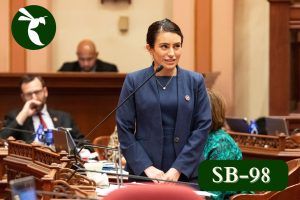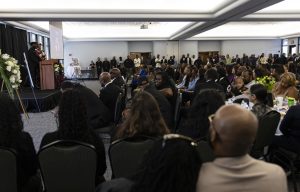Student athlete council builds bonds between sports teams
March 1, 2011
The Student-Athlete Advisory Council gives student-athletes information on NCAA and school legislations involving their sports as well as what is going on with the other sports.
“With school and our schedules, you don’t really get to hear about what else is going on (with the) campus or what the other sports are doing,” said council member Hunter Adrian, junior first baseman.
The council provides students with a voice and a network among all the athletes on campus, said sophomore gymnast Bethany Barrick, member of the council. It is a council that selects student-athletes from each sport to be a leader. It is these leaders’ job to voice the ideas and problems of each team, and are an outlet to keep their teams informed on campus details.
“We just bring in all the different teams, interact, and get a feel for what we want to do as an athletic group to support on-campus events or off-campus charities,” Adrian said.
The council allows the student-athletes to bring ideas to the table for their peers to discuss, engaging athletes together in an outside event or charity work.
“Players get a chance to speak up” said council member Clarisse Baca Peynado, junior tennis player. “It’s the opportunity to connect with people and be a part of something.”
The council meets about every three weeks, on Monday nights, to go over NCAA or school legislations, future events, how to get more support at matches or to share game schedules. The ideas that are shared are to make every sport stronger, Baca Peynado said. The ideas and events help give members an opportunity to see their teammates outside their sports.
“It is similar to a student council in high school,” said council member Peter Buck, senior linebacker. “Except with older, more established athletes. We represent somebody else.”
The council members put on several charity events throughout the year. Some events they organize are canned food drives, auctions, adopt-a-family and charity walks. As of now, they are working on setting a day to visit the Shriners Children’s Hospital.
“(The kids) just love to be around athletes,” Buck said. “We come in there to hang out and play with them.”
Buck helps to organize the events along with Mark McGushin, coordinator of Life Skills and Student-Athlete Development. Together, they make sure the events come together and that everything is taken care of &- being more of a coordinator than an authoritative figure.
Two athletes from each sport are selected to be on the council by their coaches depending on good character and academics, Buck said. Every team tries to appoint a student early on in his or her freshman year and have them go through until senior year. This helps to provide an upper class and a lower class leader who anyone on the team can turn to in a time of need, Buck said. Most of the student-athletes who are chosen for the council are also the captains of their teams.
The student-athletes said that their experiences would be different if they were not a part of the council. There would be no connection among all the sports on campus, Baca Peynado said.
“Unless you go to a game, you don’t see the other athletes,” Buck said. “It’s important to know what is going on with other sports to support each other and understand the common struggles.”
The members of this council receive benefits that they can take advantage of later on in life. Being part of the group looks great as a resume reference and helps with finding a job because it demonstrates strong qualities, Buck said. There are some businesses that partner with the council to assist the students, and sometimes recruit them based on being well-rounded. Western Mutual has been very involved with the council, recruiting student-athletes for jobs and internships, Buck said.
The student-athletes said the council gives them a voice and interaction with their fellow athletes. The council gives the opportunity to talk to administration about anything, whether it is good or bad, because they have more voices and a better well-rounded opinion, Buck said.
“We’re the voice to the NCAA for what the athletes are feeling,” he said.
You can reach Stacey Adams at [email protected]
























































































































